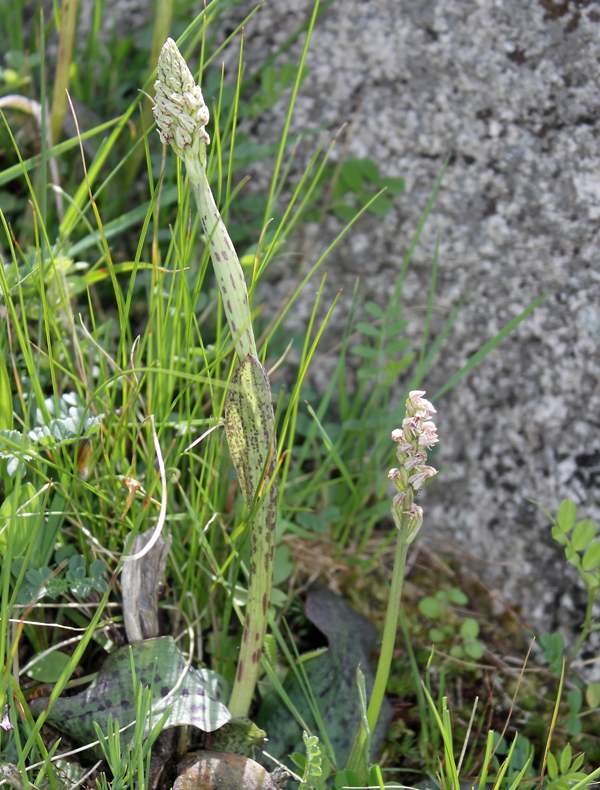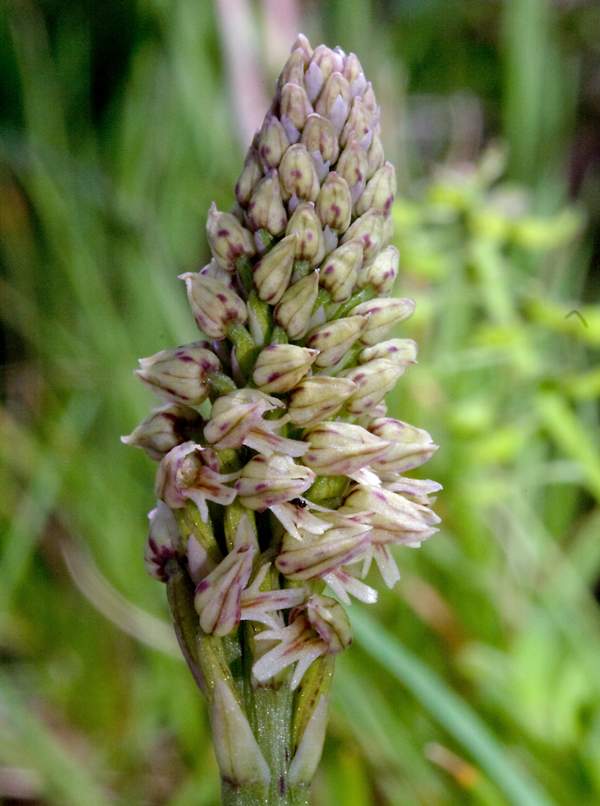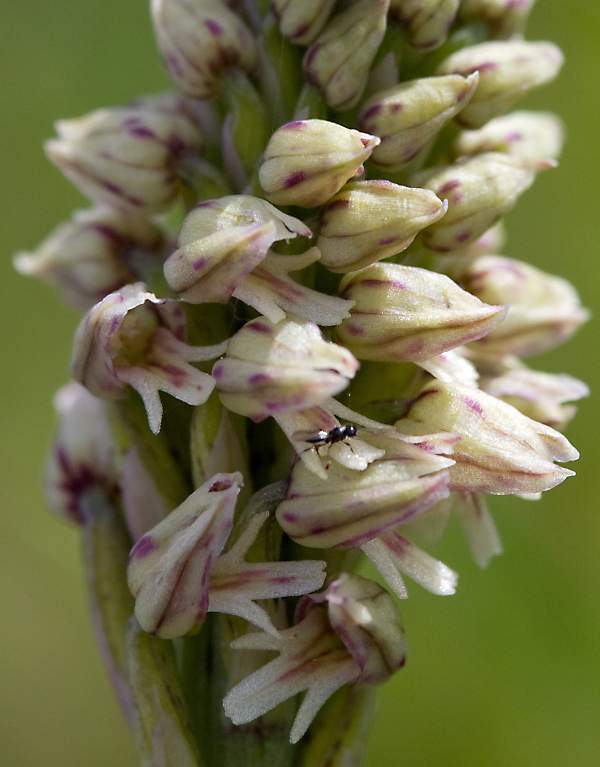Neotinea maculata - Dense-flowered Orchid
Phylum: Magnoliophyta - Class: Liliopsida - Order: Orchidales - Family: Orchidaceae

Neotinea maculata var. maculata photographed on the Gargano Peninsula in Italy
Description
Neotinea maculata, formerly known as Orchis intacta, is a slender plant which grows to around 30cm tall but is often barely half that height. There are 3-6 basal leaves and two or three smaller leaves sheathing the rather robust (for such a tiny plant) stem. Both leaves and stem are frequently marked with reddish-brown streaks and spots. The flowers, which are packed into a dense inflorescence, are tiny, usually white and often flushed to a varying degree with pink. They have a slight vanilla scent.

Neotinea maculata var. maculata has a distinct vertical pink stripe on the lip of the flower
Distribution
The Dense-flowered Orchid is widespread throughout Europe. It is one of the plants that makes The Burren, in County Clare, Ireland, such a special place, having as it does arctic plants such as Dryas octopetala and Scilla verna growing alongside Mediterranean plants such as Neotinea maculata. In the UK it also also occurs in the Isle of Man. In continental Europe it appears from as far North as France to as far south and east as Turkey. It is widespread in the Algarve in Portugal where it grows on roadside verges up in the mountains around Monchique as well as in the river valleys alongside paths and tracks often hugging drystone walls.

Neotinea maculata var. maculata
Habitat
This orchid grows in full sunshine or mid-shade and tolerates alkaline and slightly acidic soils.
Flowering times
March and April.
Hybrids and varieties
There are three varieties

-
Neotinea maculata var. alba (above, photographed in Rhodes) has unspotted leaves and cream-coloured flowers.

-
Neotinea maculata var. maculata has spotted leaves, and the flower lip is pale pink with a darker pink stripe along its centre. Other parts of the plant can also be spotted, including the stem, sepals and petals; this variety is common in the Mediterranean. The plant above was photographed in Rhodes
- Neotinea maculata var. luteola has pale yellow flowers and is probably extinct in Ireland.
Etymology
The genus name Neotinea honours the Sicilian botanist Vincenzo Tineo (1791 - 1856) , while the specific epithet maculata means 'spotted'.
Acknowledgements
This page includes pictures kindly contributed by Rob Petley-Jones.
Reference sources
The Plant List
Sue Parker (2023) Wild Orchids of the Algarve - where, when and how to find them; First Nature e-book (Amazon Kindle format)
Chris Thorogood and Simon Hiscock (2014) Field Guide to the Wildflowers of the Algarve; Kew Publishing
Pierre Delforge (2005) Orchids of Europe, North Africa and the Middle East; A&C Black
Fielding, Turland and Mathew (2005) Flowers of Crete; Kew
Please Help Us: If you have found this information interesting and useful, please consider helping to keep First Nature online by making a small donation towards the web hosting and internet costs.
Any donations over and above the essential running costs will help support the conservation work of Plantlife, the Rivers Trust and charitable botanic gardens - as do author royalties and publisher proceeds from books by Pat and Sue.


